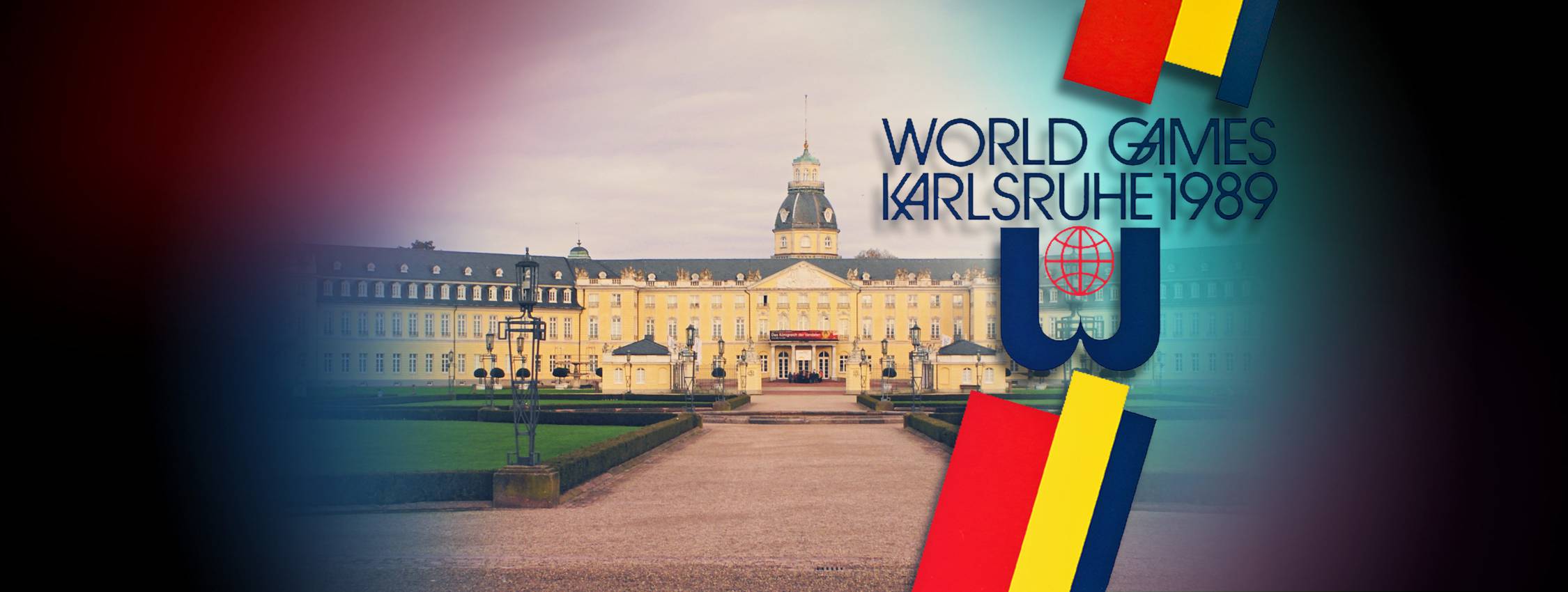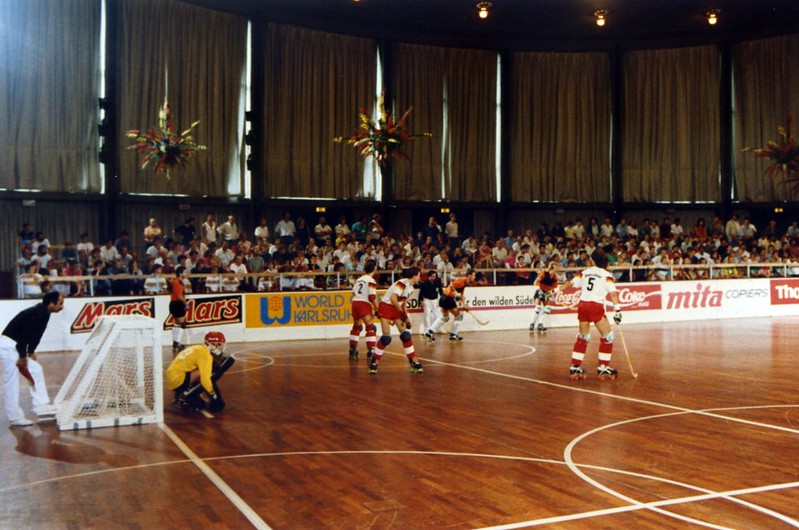The first Games with a real Host City
The third edition of The World Games took place in Karlsruhe - Germany, from 20 to 30 July 1989. The event set two important milestones: Host City and Games Garden. For the first time, a city was really a Host City, organizing and supporting the ten days of competition with 17 sports. In addition, The World Games Garden, provided a venue where the public could participate in various sports, which contributed to the success of the event.
In Santa Clara (1981) and London (1985), the IWGA had only used the sports facilities of the cities. However, the administrations of these cities were not involved in the organisation. This changed in Karlsruhe: Lord Mayor Gerhard Seiler was President of the Organizing Committee, while Mayor Norbert Vöhringer was in charge of the operational business. On the IWGA side, General Secretary Rolf Noess worked to run the event.
IOC President Antonio Samaranch opened the third edition of The World Games on 20 July 1983 in the Europahalle in Karlsruhe. In front of 6,000 spectators , he said in his speech: "After Karlsruhe, The World Games will be completely different". Samaranch announced supplementary support to the IWGA and offered to place The World Games under the patronage of the IOC.
The World Games had become a real springboard for international sports federations in their desire to participate in the Olympic program: Badminton was Olympic demonstration sport in 1972, but after its participation in The World Games 1981 it is on the Olympic program since 1992. Some of the sports on the program of The World Games in Karlsruhe are now part of the Olympic program; Trampoline (after its merger with Gymnastics), Taekwondo and Triathlon.
The World Games Garden - an idea of IWGA General Secretary Rolf Noess - provided not only an option for the public to participate in various sports, but offered also a presentation area for American Football, Flying Disc-Ultimate, Rhönrad, Skateboard and Karlsruhe-based Ring Tennis. In a media report from that time the Games Garden was praised: “The involvement of the audience in the various sports was worth its weight in gold and guaranteed success."
To the facts and figures: The programme included 17 competition sports. For the first and only time, Indoor Cycling competitions were held at World Games. Aikido and Minigolf were presented as invitational sports. Triathlon, Boomerang and Flying Disc - Ultimate were among the demonstration sports. A total of 103 medal events were performed during the event. 1,644 athletes (1206 in the competition sports) from 50 nations took part. Italy took first place in the medal tally with 22 gold medals ahead of Germany with 18 gold medals and the -then- USSR with 15 gold medals. Italy won 8 of its 22 gold medals in Life Saving. The most successful athlete of the games came also from Lifesaving; Pietro Voltan from Italy won five gold medals, one silver medal and two bronze medals. Tatiana Melnikova from USSR (Russia) was second best with four gold medals and one bronze in Finswimming.
200,000 spectators followed the fights for gold. Much more than expected! 400 media representatives reported on TWG 1989. 13 hours were shown on national television, 60 hours worldwide. Karlsruhe presented a very compact The World Games event. The organizers used a total of 7 venues for the competition sports and one additional venue for the invitational sport Minigolf. The central competition venue was the Europahalle with the adjacent sports park. The Europahalle was the venue for no less than seven sports. In addition, competitions were staged on outdoor facilities at Turmberg (Field Archery), in the Fächer-Swimmingpool and in the Rhine harbour of Wörth (Water Ski).
Karlsruhe was the first Host City to organise a cultural programme as part of The World Games to complement the sport competitions. Another novelty at The World Games edition of 1989: The Organizing Committee of Karlsruhe was the first to introduce a mascot for the event: a peacock with the text “Fidelity” on its chest. The feathers of the peacock symbolized the fan shaped layout of the city and “Fidelity” is the English translation of the Latin “Fidelitas” (loyalty) which comes from the City Crest (coat of arms) of Karlsruhe.
Karl-Heinz Stadler, who brought The World Games to Karlsruhe in 1989, was later awarded the “Bundesverdienstkreuz”, a high order in Germany, for his services to sports in Germany.












